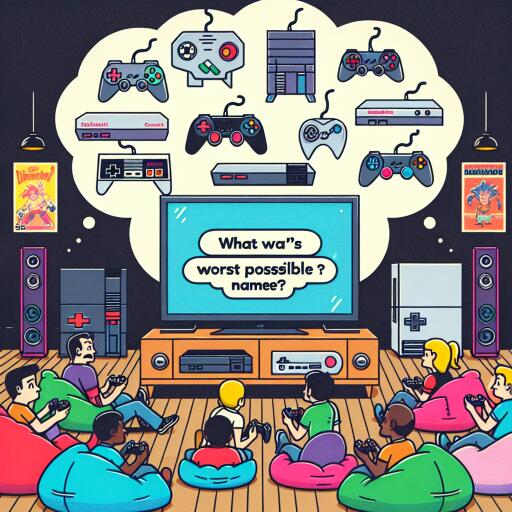Games Inbox: The Art of Naming Video Game Consoles
In the sphere of gaming, console names are more than just labels; they’re a vital part of marketing, branding, and consumer perception. Yet, when we look back over the years, some names have undeniably sparked more confusion and amusement than awe. As industry giants jostle for dominance, the quest for the perfect console name continues to be fraught with hits and misses.
Reflecting on current and past generations, one can’t help but wonder if Nintendo, Microsoft, and Sony occasionally spin a wheel of fortune when deciding on names. From the thought-provoking simplicity of Switch to the head-scratching choice of Wii, it’s clear that naming a console is no small feat. Notably, the Wii U’s name likely contributed to its marketplace challenges, while Microsoft’s Xbox Series X has stirred its own share of bewilderment. Sony’s PlayStation series, by most accounts, has kept a steady course with its numbered system, yet it too must eventually navigate beyond the predictable.
Delving into the annals of gaming history, we discover the Bally Astrocade, a name that hearkens back to 1978—a gem in naming conventions that raises both eyebrows and smiles. Such quirky names invite contemplation on what makes a console name resonate with its audience. Certainly, the Wii U stands out as perhaps a cautionary tale—a name that not only befuddled consumers but also, perhaps, hindered its success.
Despite the complexity of the naming issue, it’s intriguing to consider the factors at play. The Switch, with its clear emphasis on flexibility and movement between console and handheld play, arguably nailed it, underscoring how a good name can mirror a product’s essence.
Moving beyond names, the industry finds itself in constant evolution, with each new generation bringing challenges and changes. Amid discussions of industry downturns and market saturation, some gamers reminisce about times when gaming seemed simpler, less entangled in the complex economics of today. Nostalgia for past console crashes and the hope that companies like Nintendo can once again lead a resurgence are common sentiments.
As gaming continues to intertwine more deeply with other forms of digital entertainment, the conversation around console names represents a microcosm of the larger industry dynamics. The balance between maintaining a unique brand identity and ensuring clarity to potential customers is delicate. From interviews to fan discussions, the debate over strategies, be it exclusives or cross-platform releases, showcases the ongoing tensions within gaming’s corporate strategies.
Yet, even as we scrutinize these debates, the community’s passion remains unwavering. From sharing lists of cherished video game magazines to reminiscing about the golden eras of gaming, it’s clear that despite the industry’s ebbs and flows, the love for video gaming is a constant. Whether discussing the merit of game subscription models like Game Pass or celebrating the indie game scene’s creativity, gamers continue to engage deeply with their hobby.
In the final analysis, while console names may capture our immediate attention, it’s the experiences these machines provide that leave a lasting impact. Through discussions of game reviews, industry trends, and gamer nostalgia, the vibrant tapestry of gaming culture continues to evolve. As we look ahead, perhaps with an eye towards shorter, more impactful games or the next big indie hit, the community’s shared passion for gaming serves as a guiding star. Amidst this, the quest for the perfect console name goes on, a reminder of the playful spirit that lies at the heart of the gaming universe.
With each new announcement and industry shift, gamers worldwide remain eager participants in the ongoing story of video games—a narrative that’s as much about the names we give our consoles as it is about the adventures they unlock.









